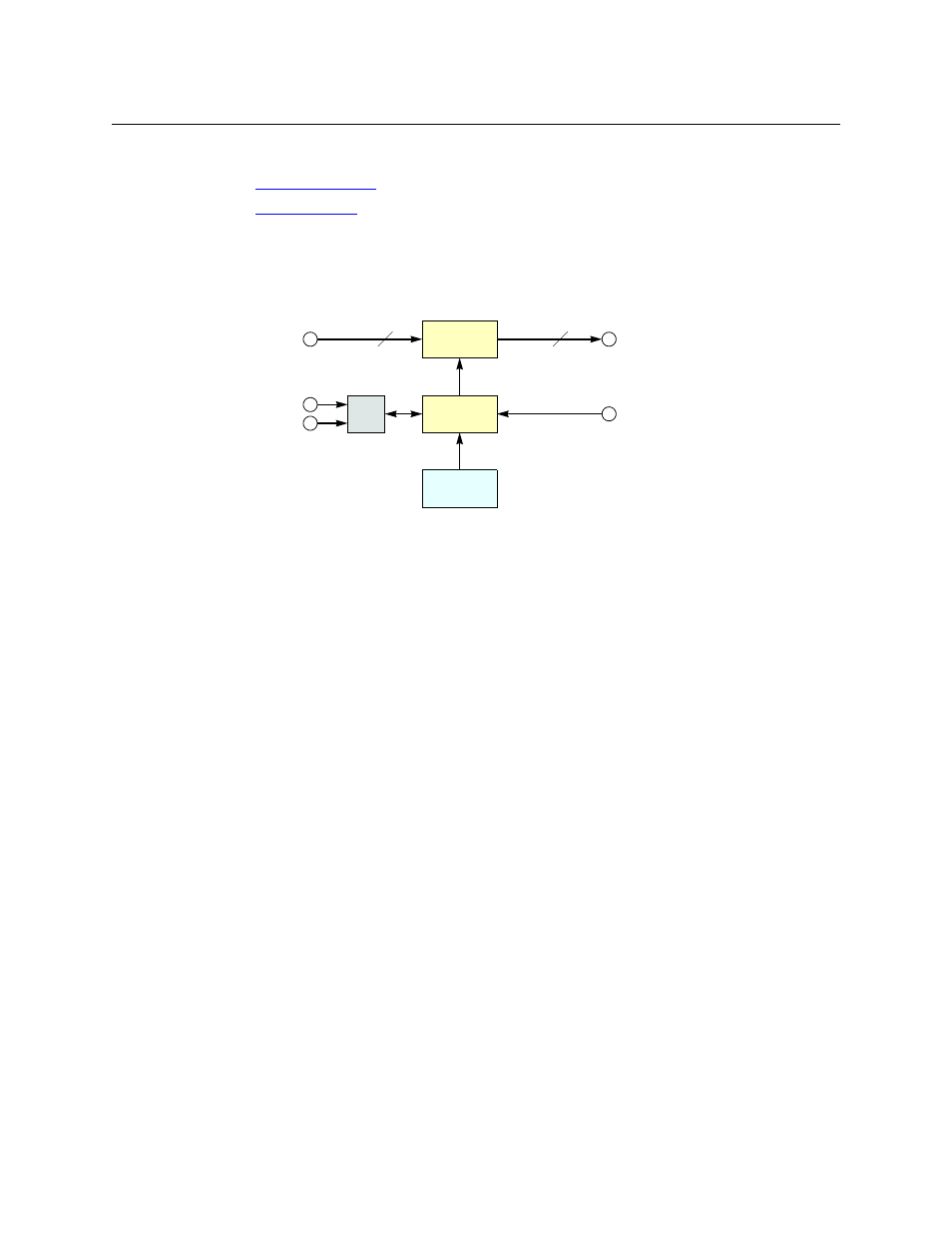Digital video routers – Grass Valley CR Series v.3.2 User Manual
Page 24

12
Introduction
Overview
Digital Video Routers
(See
on page 13 for a discussion of the CQX routers.)
(See
on page 16 for a discussion of the CR6400 routers.)
Other digital video routers are discussed here.
The 1RU digital video routers have 16×16, 16×4, or 8×8 crosspoint matrices, depending on the
model. The 2RU digital video routers have either 32×32 or 32×4 crosspoint matrices.
Figure 2-18 shows a simplified view of the digital video router:
Fig. 2-18: Block Diagram of the Digital Video Router
The video routers perform input equalization and, except for the -NR models, perform
reclocking of outputs. The -NR models do not perform reclocking. Router outputs are switched
in sync with an external video reference if it is present.
All digital video routers accept bi-level or tri-level video references (sync) and switch according
to SMPTE RP168-2002.
3Gig and HD Video Routers
All of the “3Gig” routers support 2.966Gb/s, and 2.97Gb/s video rates as well as a number of HD
bit rates and formats. The 3Gig routers reclock at 270Mb/s, 1.483Gb/s, 1.485Gb/s, 2.966Gb/s,
and 2.97Gb/s. The 3Gig routers bypass re-clocking for other rates. Video references must be
nominally 800mV p-p and bi-level or tri-level in nature.
All of the “HD” routers are SWB (super wide band) routers: they support a wide range of SD and
HD bit rates and formats, from 10Mbps to 1.5Gbps. With the exception of the -NR routers, the
HD routers reclock at 143, 177, 270, 360, and 540Mb/s and 1.483 and 1.485Gb/s and bypass re-
clocking for other rates. Video references must be nominally 800mV p-p and bi-level or tri-level
in nature. The HD routers support DVB-ASI signals.
SD Video Routers
All of the “SD” routers support a wide range of SD serial data rates from 10Mb/s to 540MB/s.
With the exception of the -NR routers, the SD routers reclock at 143, 177, 270, 360, and 540Mb/s.
The SD routers support DVB-ASI signals.
NR Video Routers
The HD and SD routers are available in non-reclocking models, such as the CR1616-HD-NR and
CR3204-SD-NR. These models are less expensive than the models that have reclocking circuitry
and work well with relatively noise-free signals. The reclocking models give better performance
in noisy environments.
M
N
μP
Logic
Inputs
(Equalized)
Outputs
(Reclocked)
Crosspoint
Switch
Control
Panel
Video Refer-
ence
Serial
Ethernet
(optional)
M = 8, 16, or 32
N = 4, 8, 16, or 32
